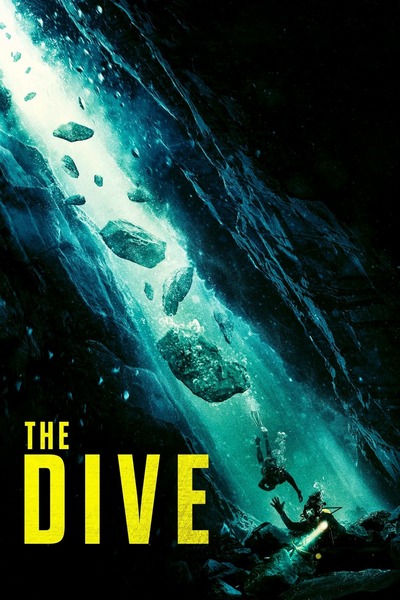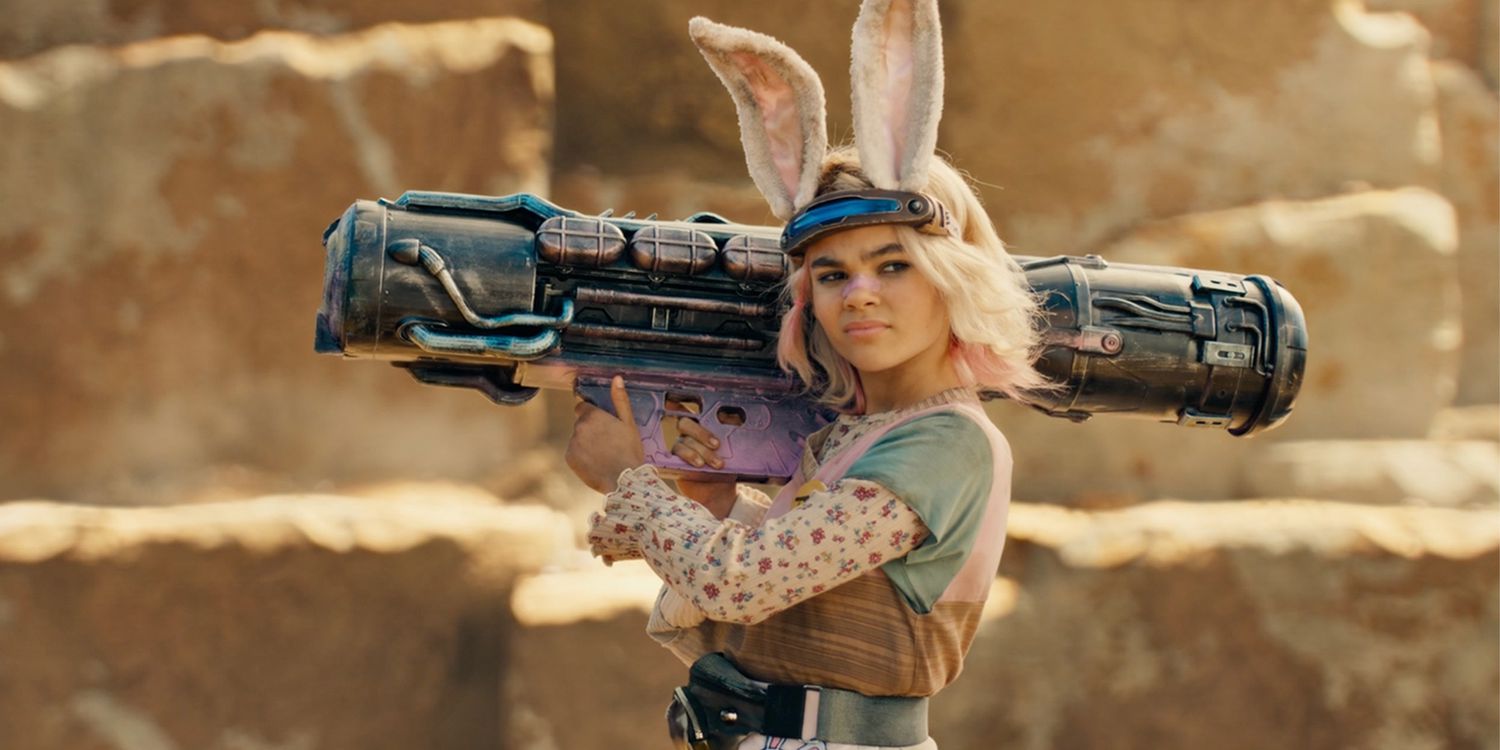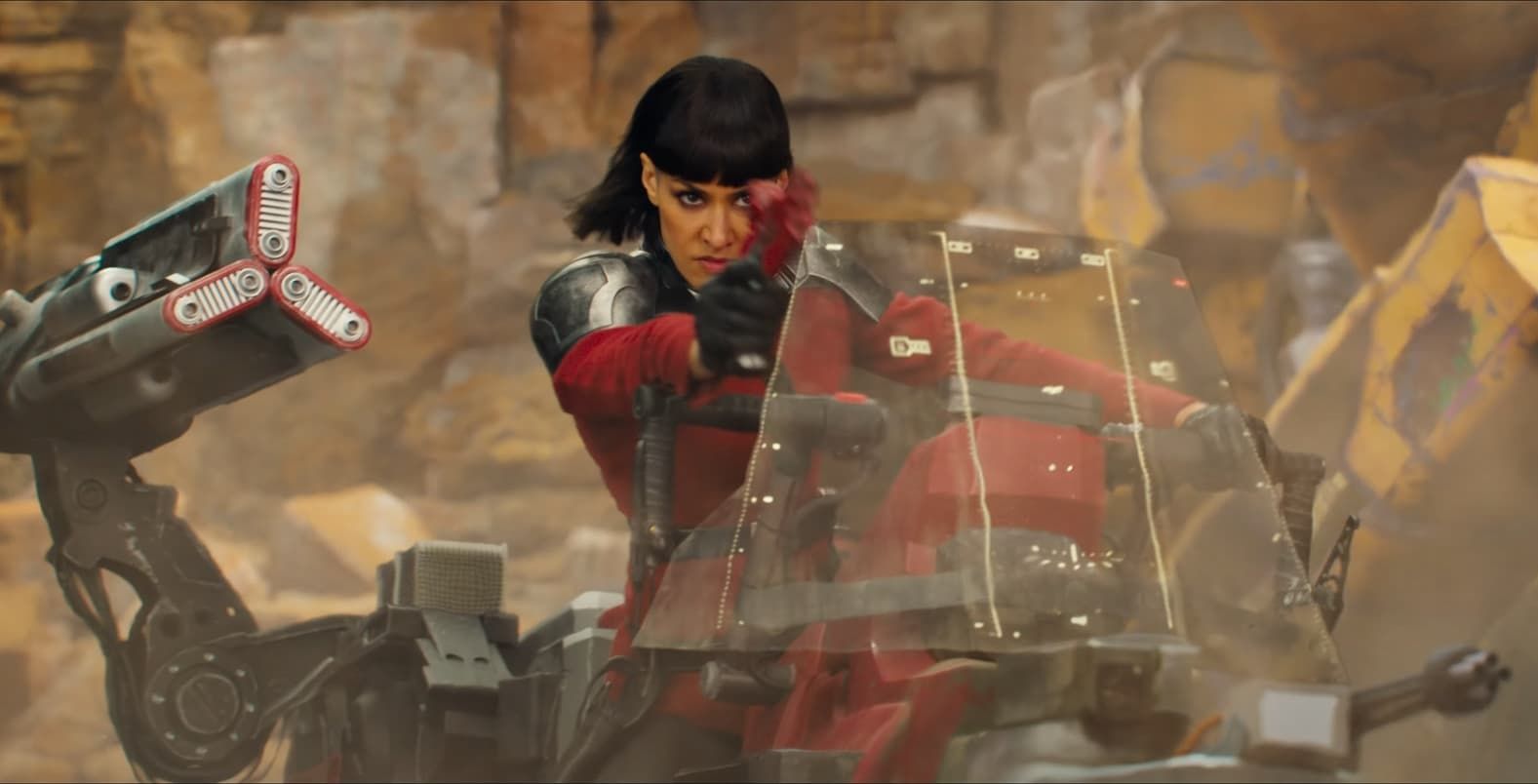Literary rating: ★★★½
Kick-butt quotient: ☆☆☆
A Goodreads friend gave this novel (the first book in the author’s Miss Fortune Mysteries) five stars, which put it on my radar; and I downloaded the e-book edition when I discovered that it’s offered for free, as a teaser for the series. While my rating isn’t as high as my friend’s, and I didn’t expect that it would be, I did turn out to like the book somewhat more than I expected to.
Our protagonist and first-person narrator here is “Fortune” Redding. We’re not told her real first name (“Fortune” is the handle she’s used to answering to, but it’s indicated, well into the book, that it’s a nickname, short for “soldier of fortune”) or her exact age; but she’s worked for the CIA for eight or five years, depending on which figure we go with, since we’re given both in different places. (I took the first one to start with, so picture her as about 30, joining the Company just after college.) The affiliation was a natural one for her; her father, with whom she had a prickly relationship, was a top CIA agent, and after his death when she was 15, her remaining teen years were overseen by a couple of CIA officials, one of whom is now her boss. (Her mother had died years earlier.) She’s a seasoned assassin (of verified baddies), with a VERY long list of kills to her credit, and zero compunctions about her line of work. But she’s neither a psychopath nor a moral nihilist; on the contrary, she’s basically a kindhearted person (albeit an emotionally-constipated loner with no confidential friends), who sympathizes readily with those in danger and distress.
 That trait got her in trouble on her latest mission. It wasn’t supposed to be a hit; she was simply posing as the glamorous mistress of a drug dealer, delivering money for him to a Middle Eastern crime boss. But (as we learn along with her, at the debriefing in the first chapter) her meeting was compromised by an unknown leak in the CIA, who’d tipped the bad guys off as to who she was. They’d decided to test the tip by setting up a situation where she’d have to act to try to rescue a 12-year-old sex trafficking victim, figuring that she could then easily be dealt with, since she’d come unarmed. Unhappily for them, Fortune’s quite adept at improvising a weapon when she has to; though she doesn’t care much for high heels, she dispatched the head honcho with a stiletto heel on the shoes she was wearing, and got away clean, presumably with the 12-year-old. (We learn about this only in a terse second-hand report; I’d have loved to read it in real time!) Now, the deceased’s brother Ahmad, also a big-time crime lord, has put her picture all over the Dark Web, with a million-dollar price on her head (ten million, if she can be delivered to him alive to be tortured).
That trait got her in trouble on her latest mission. It wasn’t supposed to be a hit; she was simply posing as the glamorous mistress of a drug dealer, delivering money for him to a Middle Eastern crime boss. But (as we learn along with her, at the debriefing in the first chapter) her meeting was compromised by an unknown leak in the CIA, who’d tipped the bad guys off as to who she was. They’d decided to test the tip by setting up a situation where she’d have to act to try to rescue a 12-year-old sex trafficking victim, figuring that she could then easily be dealt with, since she’d come unarmed. Unhappily for them, Fortune’s quite adept at improvising a weapon when she has to; though she doesn’t care much for high heels, she dispatched the head honcho with a stiletto heel on the shoes she was wearing, and got away clean, presumably with the 12-year-old. (We learn about this only in a terse second-hand report; I’d have loved to read it in real time!) Now, the deceased’s brother Ahmad, also a big-time crime lord, has put her picture all over the Dark Web, with a million-dollar price on her head (ten million, if she can be delivered to him alive to be tortured).
If Ahmad can be taken out, the contract on her will be moot, but in the meantime, she needs to be stashed in a safe place –and one that can’t be compromised by the unidentified leaker. Luckily, her boss’ niece, librarian and former beauty queen Sandy-Sue Morrow, just inherited a house in Sinful (population 253) in the bayou country of southern Louisiana from a newly-dead aunt on her mother’s side. The two weren’t close; Sandy-Sue has never been to Sinful, and she has no social media presence due to a stalking incident years ago. With summer just starting, she’s scheduled to go down there to inventory the house’s contents and prepare it for sale. Before the very unwilling Fortune can say “culture shock,” her boss has packed the real Sandy-Sue off for a summer in Europe, and our heroine is in route to Louisiana to hide under this new identity. It’s only supposed to be through the summer months; and in a small, quiet southern community, nothing’s apt to go wrong, right? But the flooding caused by a recent hurricane unearthed and moved a lot of debris in the backwoods, and on Fortune’s first evening in town, the late aunt’s dog fishes a human bone out of the bayou behind the house. It proves to have belonged to a very wealthy, and universally hated, town resident who disappeared some five years ago….
As mysteries go, this one is not deep or in some respects very plausible, but it is entertaining. Despite the author’s use of a humorous tone in most of it –though it has its serious moments, some of them deadly so (literally!)– it’s not really an example of the “cozy” subgenre, nor even of the broader stream of more “genteel” who-dunnits in general. That tradition features more actual detection in terms of sifting physical clues and witness statements, and eschews directly-described physical violence. There’s little of the former here, and definitely some of the latter in the denouement. (Action-heroine fans may be pleasantly surprised to find that Fortune’s combat skills won’t necessarily have to go to waste in this new environment!) But the mystery of who killed Harvey Chicoran doesn’t necessarily have an immediately obvious solution (many characters, and no doubt readers, may assume that the widow did it –but did she?). There will be twists and turns in solving it, and Fortune’s involvement in that effort will provide her –and readers– with challenges, adventures, excitement and danger.
A weakness of the book is that a lot of the humor exaggerates the quirkiness and peculiarities of the Louisiana bayou country’s rural inhabitants to the point of caricature. It plays to stereotypes that too many urbanites have about the South, and rural people in general, which reflects culpable ignorance of cultures outside their own. Fortune herself is a prime example; she seriously wonders, for instance, if the community she’s going to has electricity. (Rolls eyes profusely.) She also has a tendency to reduce women with Sandy-Sue’s background to despised, stereotyped “Others.” Some characters, like the members of the Sinful Ladies Society (membership is only open to “old maids” or widows of 10 years standing, to avoid contamination by “silly man thinking”), are steeped in misandry, and Deleon views that as funny. This is mitigated to a degree by the fact that she’s native to the region (which I’ve visited) herself, does reveal some basic affection for it, and depicts it with some realistic local color; and by the fact that she does portray a couple of male characters positively. There are also a few inconsistencies that should have been caught and edited out.
On the positive side, this is a tautly paced book that keeps you turning pages, or in my case clicking frames (I read the first two-thirds of it in one sitting, and could and would have read it all if time had allowed!), with a tightly-compressed plot that unfolds in less than a week. Even if you disagree with some of Fortune’s attitudes, she is honestly likable, with a wryly humorous narrative voice that’s appealing (at least to this reader). She exhibits a willingness to look at herself and grow through exposure to new experience, which I like; and I appreciated the strong depiction of female friendship and loyalty. There’s a certain amount of bad language here, mostly of the h and d-word sort or vulgarisms, but not much profanity and no obscenity; and there’s no sexual content nor any romance at all (though I understand that a romance develops in subsequent books in the series). While Fortune describes herself, though not out loud, as a “heathen” (when she’s informed that everybody in Sinful who’s not one of the latter attends one of its two churches), and some humor based on the foibles of the church-goers, there’s no actual pushing of an anti-Christian agenda.
I only read this book as a diversion, because it was free; I don’t plan to follow the series. But I don’t regret making Fortune’s acquaintance, nor visiting her in her new-found community. :-)
Author: Jana Deleon
Publisher: Self-publihed; available through Amazon, both for Kindle and as a print book.
A version of this review previously appeared on Goodreads.





 This is an English language remake of
This is an English language remake of  ★★★
★★★ While that may have bothered the gamers, I had no problem with it at all. Admittedly, I have never played the games, so what do I know? But Cate Blanchett, who is in her mid-fifties, still looks fit and beautiful enough to play an action role – which is, at least for me, something I always wanted to see. I was quite disappointed when her villainous Hela in Thor: Ragnarok (2017) was side-lined in favor of Thor and Hulk battling it out on another planet. Her red hair here, incidentally reminded me of old dystopian SF movie Cherry 2000. Fans will always complain about how their heroes are portrayed. It’s an old story: Hugh Jackman was too large for Wolverine, Tom Cruise too small for Jack Reacher, I tend to file these under “Bond is not blond”: I don’t think these complaints should matter much, if the respective actor can fill out the role in question believably.
While that may have bothered the gamers, I had no problem with it at all. Admittedly, I have never played the games, so what do I know? But Cate Blanchett, who is in her mid-fifties, still looks fit and beautiful enough to play an action role – which is, at least for me, something I always wanted to see. I was quite disappointed when her villainous Hela in Thor: Ragnarok (2017) was side-lined in favor of Thor and Hulk battling it out on another planet. Her red hair here, incidentally reminded me of old dystopian SF movie Cherry 2000. Fans will always complain about how their heroes are portrayed. It’s an old story: Hugh Jackman was too large for Wolverine, Tom Cruise too small for Jack Reacher, I tend to file these under “Bond is not blond”: I don’t think these complaints should matter much, if the respective actor can fill out the role in question believably. Instead, most of the time, these characters feel like cardboard cut-outs. Apart from Lilith no one gets any kind of backstory. There are one or two nuggets about Tiny Tina, Claptrap or Tannis and that’s it. It’s even worse with the male characters, I know literally nothing about Krieg or Roland. Who are they supposed to be? Where do they come from? Don’t get me wrong, I hardly need an extensive biography: a bit more than nothing would have been nice. Also, who are these different groups? What do they stand for? Why are they fighting? Against whom? It feels as if the filmmakers expect me to know all this before I go into the movie.
Instead, most of the time, these characters feel like cardboard cut-outs. Apart from Lilith no one gets any kind of backstory. There are one or two nuggets about Tiny Tina, Claptrap or Tannis and that’s it. It’s even worse with the male characters, I know literally nothing about Krieg or Roland. Who are they supposed to be? Where do they come from? Don’t get me wrong, I hardly need an extensive biography: a bit more than nothing would have been nice. Also, who are these different groups? What do they stand for? Why are they fighting? Against whom? It feels as if the filmmakers expect me to know all this before I go into the movie. For, yes: Borderlands disappoints, whether or not you know the games. A simple comparison with James Gunn’s Guardians of the Galaxy movies or his second Suicide Squad shows you that so much more and better could have been possible. Instead of a good movie you get, as with Madame Web recently, a fairly mediocre one. But again: “fairly mediocre” is not the same as “utterly terrible”. That popular interest in action heroines seems to have largely evaporated, for a range of reasons, may be an additional factor in the clear financial failure of the movie. But I guess those in charge expected it would happen, going by the lack of marketing worth mentioning. Just compare the few interviews available online for this movie, with the huge marketing campaign that was launched for Deadpool & Wolverine.
For, yes: Borderlands disappoints, whether or not you know the games. A simple comparison with James Gunn’s Guardians of the Galaxy movies or his second Suicide Squad shows you that so much more and better could have been possible. Instead of a good movie you get, as with Madame Web recently, a fairly mediocre one. But again: “fairly mediocre” is not the same as “utterly terrible”. That popular interest in action heroines seems to have largely evaporated, for a range of reasons, may be an additional factor in the clear financial failure of the movie. But I guess those in charge expected it would happen, going by the lack of marketing worth mentioning. Just compare the few interviews available online for this movie, with the huge marketing campaign that was launched for Deadpool & Wolverine. The palpable sense of disappointment I felt when the end credits rolled, was all the more striking, given the decent way this opened. Ayse (Koç) is enjoying a shower after some afternoon delight with her lover, when there’s a thunderous knocking on the door. It’s her thoroughly disgruntled ex-husband. In the resulting fracas, the boyfriend is shot dead, and Ayse has to leap out of a window, and go on the run. Friends and family disown her, as the ancient concept of the honour killing still holds sway in contemporary Turkey. She can’t even go to the authorities, since the ex-husband is a policeman.
The palpable sense of disappointment I felt when the end credits rolled, was all the more striking, given the decent way this opened. Ayse (Koç) is enjoying a shower after some afternoon delight with her lover, when there’s a thunderous knocking on the door. It’s her thoroughly disgruntled ex-husband. In the resulting fracas, the boyfriend is shot dead, and Ayse has to leap out of a window, and go on the run. Friends and family disown her, as the ancient concept of the honour killing still holds sway in contemporary Turkey. She can’t even go to the authorities, since the ex-husband is a policeman.  It’s all a very grubby take on the lesbian-noir genre, whose best-known example is probably Bound. Stewart seems consciously to be trying to break out of her Twilight reputation, though results so far have been mixed. At least this isn’t the
It’s all a very grubby take on the lesbian-noir genre, whose best-known example is probably Bound. Stewart seems consciously to be trying to break out of her Twilight reputation, though results so far have been mixed. At least this isn’t the  Glass doesn’t shy away from the ugly or disgusting. One of the first scenes show us Stewart cleaning a clogged toilet (remember the scandal when Hitchcock showed us a
Glass doesn’t shy away from the ugly or disgusting. One of the first scenes show us Stewart cleaning a clogged toilet (remember the scandal when Hitchcock showed us a  In classic Hollywood noirs, dark-hearted anti-heroes would pay for their crimes. Among many examples, Fred MacMurray getting shot for his sins by femme fatale Barbara Stanwyck in Billy Wilder’s classic Double Indemnity (1944). Heck, even Thelma and Louise paid with their lives for a more or less accidental killing. In modern films it seems if evil is done by women, film makers are reluctant to give them the punishment they deserve, and let them off the hook. I find such story-telling hypocritical and highly questionable: what message is being sent to an audience?
In classic Hollywood noirs, dark-hearted anti-heroes would pay for their crimes. Among many examples, Fred MacMurray getting shot for his sins by femme fatale Barbara Stanwyck in Billy Wilder’s classic Double Indemnity (1944). Heck, even Thelma and Louise paid with their lives for a more or less accidental killing. In modern films it seems if evil is done by women, film makers are reluctant to give them the punishment they deserve, and let them off the hook. I find such story-telling hypocritical and highly questionable: what message is being sent to an audience? Back in 1990, I saw the original version of The Killer at the ICA in London. I’d never seen anything like it, and didn’t quite know what to think. But it kindled a deep fondness for Hong Kong cinema, and it’s also likely one of the most influential action films of the decade, whose impact is still being felt today. I wasn’t sure what to think about a remake, especially a gender-swapped one. These rarely work – hello, Ghostbusters. But at least this one was going to be done by the original director. Especially after having enjoyed his
Back in 1990, I saw the original version of The Killer at the ICA in London. I’d never seen anything like it, and didn’t quite know what to think. But it kindled a deep fondness for Hong Kong cinema, and it’s also likely one of the most influential action films of the decade, whose impact is still being felt today. I wasn’t sure what to think about a remake, especially a gender-swapped one. These rarely work – hello, Ghostbusters. But at least this one was going to be done by the original director. Especially after having enjoyed his  There’s something to be said for sparse simplicity, and this delivers on that concept in spades. Except for occasional flashbacks, the entire things takes place in one location: a facility somewhere in Europe. It’s where Cassie ends up, locked in a cage, after being abducted while on a trip from Britain, intending to find herself. She’s then deposited in a hall and made to fight for the amusement, gambling or whatever of online spectators. She starts off facing animals, but through pharmaceutical treatment, her strength, speed and savagery are enhanced, and the opponents – both fauna and, eventually, her own species too – become more vicious. The shock collar around her neck ensures her compliance.
There’s something to be said for sparse simplicity, and this delivers on that concept in spades. Except for occasional flashbacks, the entire things takes place in one location: a facility somewhere in Europe. It’s where Cassie ends up, locked in a cage, after being abducted while on a trip from Britain, intending to find herself. She’s then deposited in a hall and made to fight for the amusement, gambling or whatever of online spectators. She starts off facing animals, but through pharmaceutical treatment, her strength, speed and savagery are enhanced, and the opponents – both fauna and, eventually, her own species too – become more vicious. The shock collar around her neck ensures her compliance. In the early going, much of this unfolds inside Cassie’s head, as she goes through what perhaps seems inspired by the five stages of grief, from rejecting the reality of her predicament, through anger, and ending up in a personal commitment to do whatever is necessary in order to survive – even if this comes at the cost of her own humanity. But just when she’s on the edge of becoming a soulless killing machine, she’s relocated, and placed next to another prisoner, Thomas. He was also abducted, but more recently, so hasn’t been ground down by his situation yet, and his optimism reignites Cassie’s own interest in life. But is everything quite what it seems, or are there other agendas at work?
In the early going, much of this unfolds inside Cassie’s head, as she goes through what perhaps seems inspired by the five stages of grief, from rejecting the reality of her predicament, through anger, and ending up in a personal commitment to do whatever is necessary in order to survive – even if this comes at the cost of her own humanity. But just when she’s on the edge of becoming a soulless killing machine, she’s relocated, and placed next to another prisoner, Thomas. He was also abducted, but more recently, so hasn’t been ground down by his situation yet, and his optimism reignites Cassie’s own interest in life. But is everything quite what it seems, or are there other agendas at work? ★★½
★★½ The relationship between Mykah (Leason) and Jameson (Chandler) is quickly heading for the rocks, as the honesty between them has evaporated. He suspects her of lying to him and having an affair: and he’s half-right. For Mykah is misleading him about the reason for her odd hours, though it is work-related as she claims. It’s just that her job is as an assassin, who kills the husbands of battered women, assisted by family friend Lady (Frazier). After successfully offing a prospective politician, Mykah’s next job is Dyson (Jackson), after his wife Chantelle tearfully tells her story of abuse, and offers to pay half a million dollars for a job well done.
The relationship between Mykah (Leason) and Jameson (Chandler) is quickly heading for the rocks, as the honesty between them has evaporated. He suspects her of lying to him and having an affair: and he’s half-right. For Mykah is misleading him about the reason for her odd hours, though it is work-related as she claims. It’s just that her job is as an assassin, who kills the husbands of battered women, assisted by family friend Lady (Frazier). After successfully offing a prospective politician, Mykah’s next job is Dyson (Jackson), after his wife Chantelle tearfully tells her story of abuse, and offers to pay half a million dollars for a job well done.  I was braced for this to be terrible, based on IMDb user comments which were either scathing, or came from accounts with one review – a sure sign they were astroturfed. On that basis, I guess I was pleasantly surprised. Don’t get me wrong: it’s not great, and only occasionally brushes against good. But it’s semi-competent, at least once the director calms the hell down, and stops giving us musical montages in lieu of content. The titular trio are
I was braced for this to be terrible, based on IMDb user comments which were either scathing, or came from accounts with one review – a sure sign they were astroturfed. On that basis, I guess I was pleasantly surprised. Don’t get me wrong: it’s not great, and only occasionally brushes against good. But it’s semi-competent, at least once the director calms the hell down, and stops giving us musical montages in lieu of content. The titular trio are